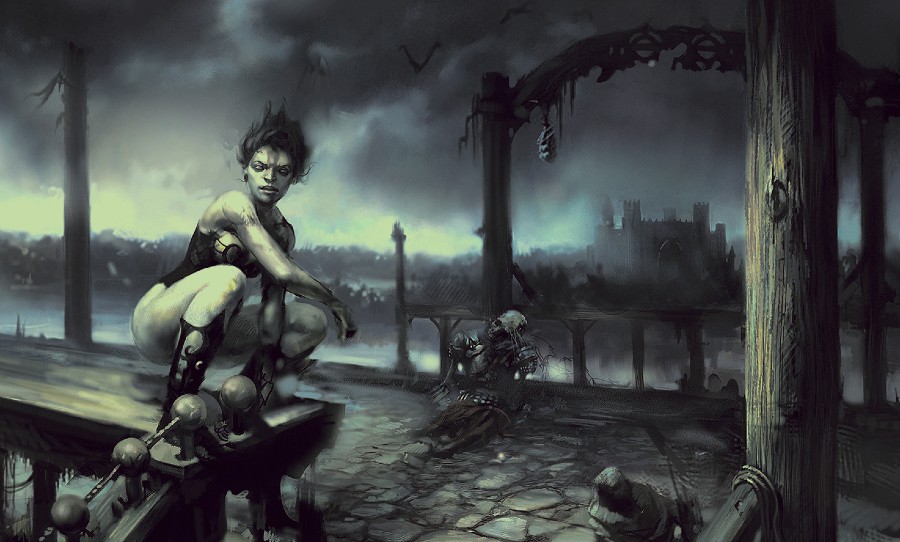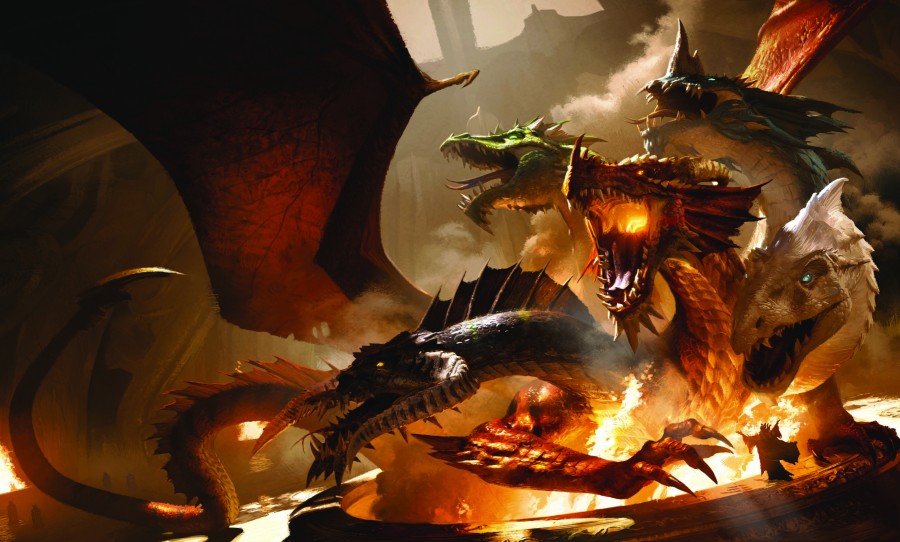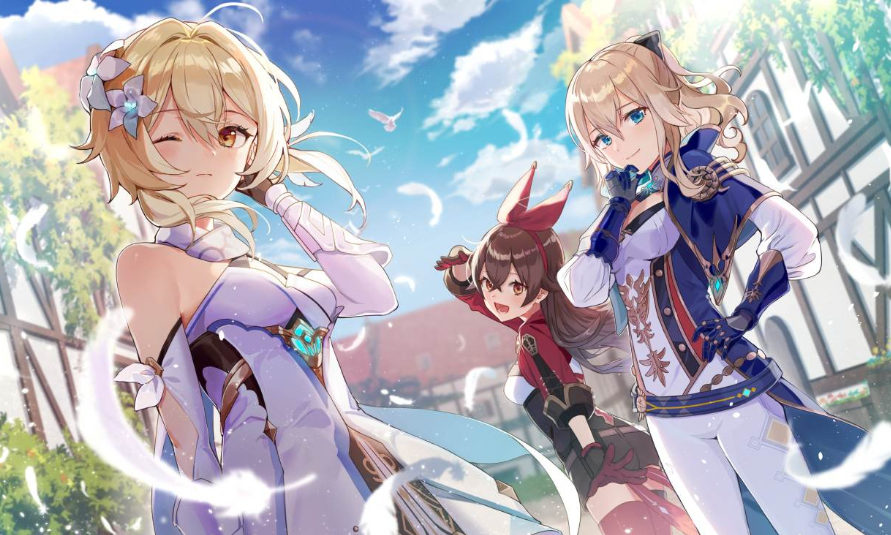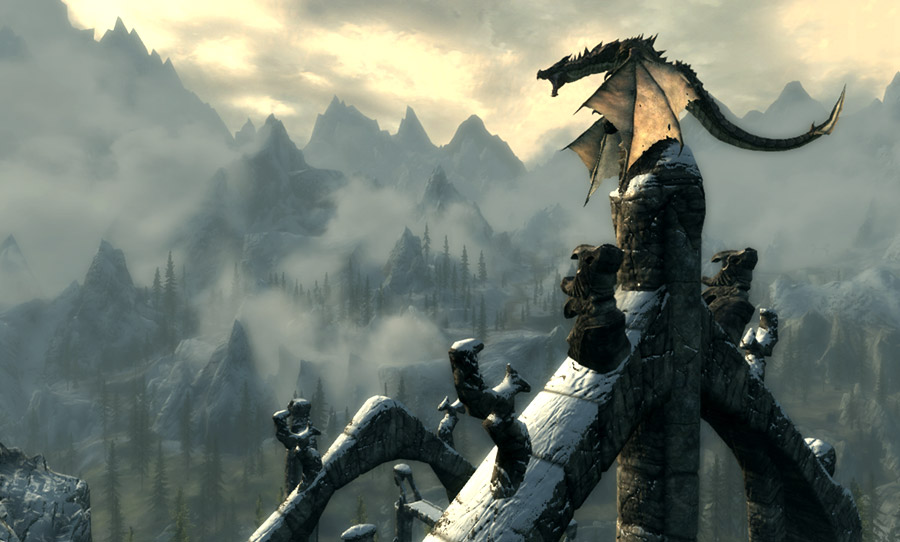The CRPG has long been a favourite for those who value strategic planning over reflex times and precise execution. Here are our top 16 CRPGs, new and old.
But before we begin, a definition. So… what is CRPG meaning? CRPG used to mean ‘Computer Role Playing Game’, which helpfully delineated between tabletop role playing games like Dungeons & Dragons and the video games that emulated their gameplay.
Nowadays, the meaning has shifted closer to ‘Classic’ RPG – games with a top-down, isometric viewpoint where the player gives a character commands (walk there, attack that), rather than executing the individual swings of their sword. For the purposes of this list, this will be the definition we’ll stick with.
CRPGs derived much of their appeal from their resemblance to their tabletop forebears, and the recent surge in the popularity of tabletop gaming has inspired plenty of developers to try to recapture the elements that make these games special.
The defining features of these games are some combination of deep characters, rich, meticulous narratives, and an emphasis on detailed battle-planning. CRPGs want you to care about every decision, because you never know which ones will make the difference between life and death.

Baldur’s Gate II: Shadows of Amn
A true classic in the CRPG genre, Baldur’s Gate II adapted to the world and ruleset used in Dungeons & Dragons to tell its epic, sprawling story.
As a child of Bhaal, the God of Murder, you must select your team to pursue and defeat the prodigiously powerful wizard Jon Irenicus, literally to hell and back. Characters are fantastically individualised, with favourites including muscled powerhouse Minsc, and Boo, his pet miniature giant space hamster.
The game is packed with imaginative quests and wonderful voice acting, making Baldurs Gate II a must-play CRPG.
Disco Elysium
Disco Elysium is truly unlike any other game to come before, CRPG or otherwise. For this reason, it’s best played with as little prior knowledge as possible.
On the surface, it’s a detective story. Solve a murder, prevent a war. Simple. Oh, except that your detective is an alcoholic, drug addicted mess of a human, and the very skill points you invest into him become the voices in his head. No big deal.
Divinity: Original Sin II
If you happen to be looking for a modernised version of Baldur’s Gate (or waiting patiently for the full version of Baldur’s Gate III), you could do a lot worse than the Divinity series. Including plenty of high-fantasy action with D&D-inspired RPG mechanics, Divinity does a fine job of capturing everything that we love about CRPGs.
Divinity: Original Sin II is generally considered to be slightly more polished than the original, but both are genre masterpieces. With up to four-player co-op, you and your buddies can band together to fend off the monstrous Voidwoken and, naturally, save the world.
Dragon Age: Origins
The first (and arguably finest) game in the Dragon Age series, Dragon Age: Origins made some excellent gameplay innovations and told a story driven by an epic fantasy plot and a cast of wonderfully individualised characters.
Dragon Age: Origins was also noteworthy, particularly at the time of release, for not pandering solely to the young-straight-male demographic, and has since become a favourite for female and non-binary gamers. With a wide array of romance options and a story that truly shifts in response to your choices, Origins is a game that any player will want to keep going back to.
Fallout 2
The Fallout series has become monumental in its own right, and was one of the foundational franchises that came to define the CRPG genre. Fallout 2 in particular made an array of vital quality-of-life improvements over the first game that made it much easier to play, and also introduced the goofy, tongue-in cheek tone that the series became known for.
In Fallout 2, the player must journey from their ailing, drought-stricken community to find a terraforming device called a Garden of Eden Creation Kit. Things go poorly, of course. Why isn’t life ever easy in a radiation-ridden nuclear apocalypse?
Happy 20th to #Fallout2, I can’t tell you how grateful I had the chance to work on it. Many thanks to Tim, Leonard, Jason, and the whole Fallout 1 team who made the 1st game so special (no pun intended) and paved the way for many more Fallouts to come. <3 #Fallout pic.twitter.com/sPu7tBOxQC
— Chris Avellone (@ChrisAvellone) September 30, 2018
Neverwinter Nights
Another entry from developer Bioware, Neverwinter Nights was the closest thing to a sequel for Baldur’s Gate II that was available for some time. Using the updated third-edition Dungeons & Dragons ruleset and setting and a fancy new 3D engine, the main campaign tasked the player with finding and stopping a plague affecting the city of Neverwinter.
While the core game was solid, Neverwinter Nights truly shone when it was in the hands of its fervent community. Content packs added new models for monsters, gear and more, and servers delivered all types of gameplay, from arena battles to hardcore permadeath role-play.
Pillars of Eternity
Made by some of the same developers responsible for the likes of the Baldur’s Gate and Icewind Dale games, Pillars of Eternity looks more like a direct sequel to its ’90s inspirations than a game that was released in 2015.
It’s text-heavy and incredibly plot driven, which is hardly a bad thing for hardcore CRPG fans. While its combat offers incredible strategic depth, the game also takes care to award XP for quest completion and exploration rather than kills, making non-violent approaches more viable and satisfying.
Planescape: Torment
While CRPGs have a tendency to adopt high fantasy settings (no doubt thanks to their tabletop counterparts), the cult-classic Planescape: Torment delivers a story and setting that are highly original and delightfully alien.
Rather than an emphasis on combat, this game places its focus almost entirely on its central character’s story. As the immortal ‘Nameless One’, you must journey to different planes of existent to recover memories of your past lives, and discover the source of your immortality.
Tyranny
Tyranny is a game about oppression. A brutal overlord seeks to expand and tighten their control, and, rather than take the role of a freedom fighter or resistance member, you play as one of their enforcers. The game uses this role as a vehicle for exploring a more insidious, realistic type of evil, rather than stereotypical villains getting around kicking puppies.
Tyranny is also a game about choice, and even the most minute can have far reaching effects. To reinforce this, your characters’ abilities are unlocked according to their reputational status with various factions, leading you to compromise between power gain and story outcomes.
Wasteland 2
If Divinity and Pillars of Eternity are spiritual successors to Baldur’s Gate, then Wasteland 2 is a successor to the CRPG Fallout games. This is no surprise, seeing as it was developed by the same people that created Fallout 1, 2, and Fallout Tactics prior to the franchise’s acquisition by Bethesda.
Gone, however, is much of the sense of humour present in Fallout. Instead, Wasteland 2 focuses on the grim reality of human life in desperate circumstances, and is full of difficult decisions that’ll leave you struggling to achieve the least-worst outcome. It’s a powerful experience that will stick with you long after you’re done playing.
Star Wars: Knights of the Old Republic
Star Wars: KOTOR is not only one of the finest CRPGs of all time, it is quite simply the best Star Wars video game. Guardians of the Galaxy director James Gunn even went as far as saying it’s the best Stars Wars story, without exception. High praise indeed.
The game is full of memorable characters, lots of lore and a stunning plot twist that will leave many players shell-shocked. It’s another example of Bioware at peak performance. The game uses Wizard of the Coast’s Star Wars Roleplaying Game rules, which in many ways is just as iconic as Dungeons & Dragons.
Torment: Tides of Numenera
The spiritual successor to Planescape: Torment was made by many of the same developers responsible for that game’s success. While not without its flaws, Torment: Tides of Numenera deserves its place on this list because of its fantastic world building.
The unique, and richly atmospheric, setting is built on the conceit that civilization has developed, and then fallen into ruin eight times over the last billion years. On your journey you will see evidence of these forgotten worlds; technologies that no one can remember how to work, architecture that is both ancient and alien. It makes for a wonderful foundation to tell a story, particularly one about immortality and morality.
Arcanum: Of Steamworks and Magick Obscura
Arcanum takes place in a wonderfully imaginative world that is somewhere between steampunk and Lord of the Rings. The game starts with you being the sole-survivor of a disastrous blimp voyage – and from there you can do pretty much what you like.
The combat and spells system aren’t especially rewarding, and in truth many players will find them tedious and frustrating. However, the characters you meet, the freedom of action and the deep lore mean that few players will regret their time in Arcanum.
Icewind Dale
If you enjoyed Baldur’s Gate II: Shadows of Amn and are craving just a little bit more of its tactical combat – then Icewind Dale will kindly oblige.
While not as groundbreaking or memorable as the aforementioned title, Icewind Dale is perhaps the finest example of a dungeon crawler. The combat is fast, challenging and fun, and the monsters are nasty and plentiful. Sounds good, right?
Ultima VII: The Black Gate
Before Fallout, Baldur’s Gate and The Elder Scrolls there was Ultima. It is difficult to overstate the influence and importance of the Ultima series regarding the history of CRPGs. The games allowed players an unprecedented level of autonomy; even going as far to allow game-breaking actions such as killing critical NPCs.
Ultima VII is one of the most acclaimed games in the series, while still having some features that will help modern players feel a little more at home; more recent entries have failed to live up to the series’ reputation. So think of Ultima VII as a historical expedition, a game that is important – although not necessarily enjoyable by modern standards. It’s like earning your stripes as a true CRPG fan.
Pathfinder: Kingmaker
When it was released in 2018, Pathfinder: Kingmaker wasn’t in particularly good shape. Technical issues and bugs were doing a fine job breaking player’s immersion, and in a CRPG that really isn’t what you want.
Fast-forward to 2021 though and the game has come on in leaps and bounds, allowing its deep lore and solid Dungeons & Dragons-inspired RPG mechanics to shine. However, be warned that the game’s complex ruleset may seem daunting to players that are new to the genre; for the already initiated though it is a thoroughly rewarding (and challenging) experience.
What is a CRPG? One of the most exciting and rewarding game formats to come along. We’ll come back here from time to time and update the list as new and improved versions and games come along.



